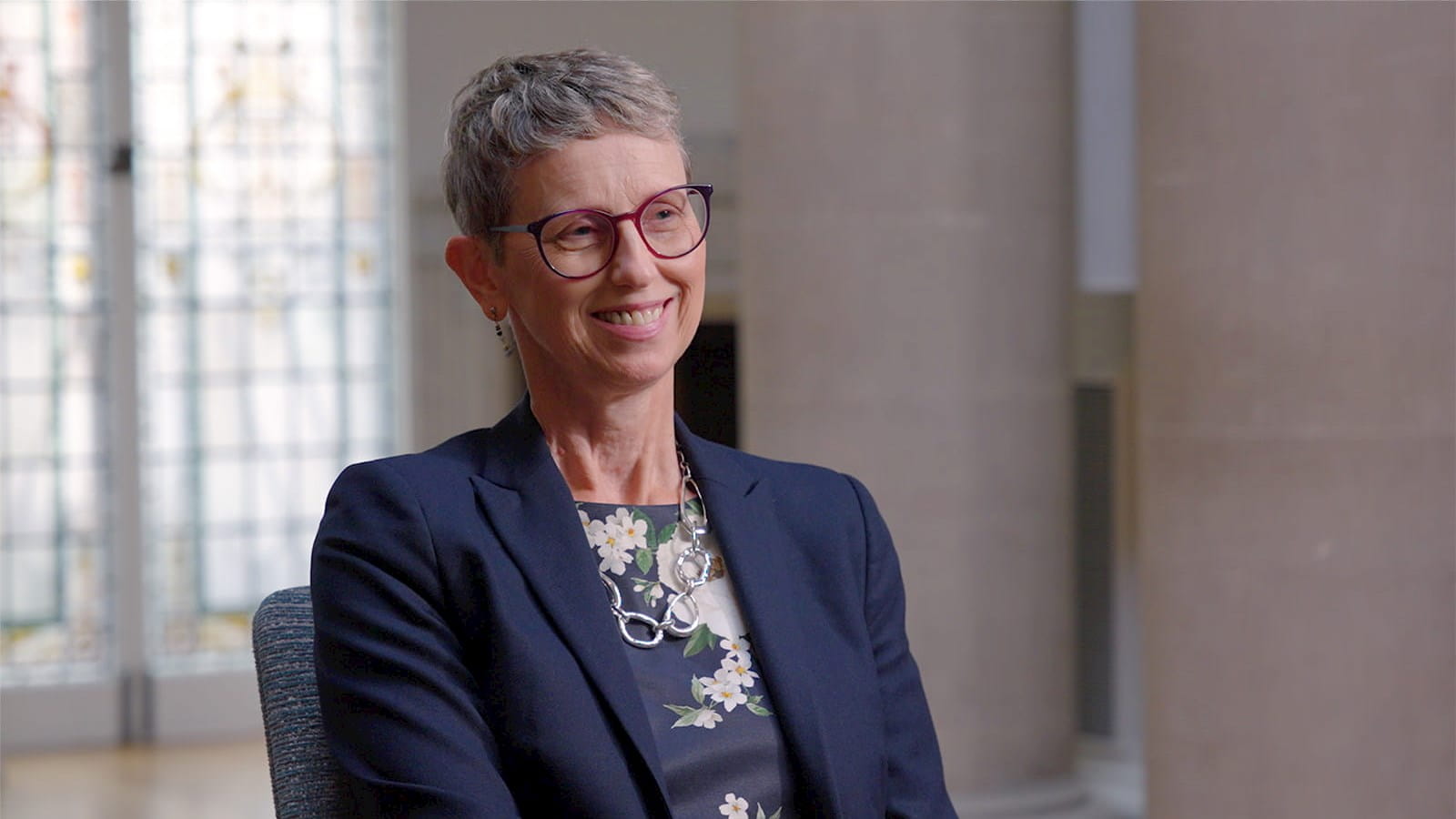Networking, networking, networking: that’s the secret of a fulfilling career, says former ICAEW President Julia Penny as she talks about her work in the audit profession.
“I’m not actually an auditor, but I’ve spent my entire career supporting them,” says Julia Penny, ICAEW President 2022-2023. As such, she’s in a good position to see the breadth of opportunities on offer to auditors and was happy to speak to us about the advantages a career in audit can bring.
Having been in the profession for some time, Penny is also in a good position to see how it has changed, and how it is likely to change in the future with the further development of new technology and new standards.
At the moment, the expansion of artificial intelligence (AI) is really starting to have an impact on audit, says Penny. “It’s been there for a long time. But we’ve seen some watershed moments with some of the later versions.” The use of data analytics; the ability to test 100% of the population, not just a sample; the use of tools that allow you to do complete tasks automatically in seconds – all are starting to transform the industry. “I think in five years, and certainly 10 years, it may leave us not unrecognisable, but significantly different,” she says. “Lots more focus, if it’s done correctly, on the judgements, on the complicated areas, and lots more technology to assist us.”
The remit of audit is also getting broader, as it moves beyond the financial side and giving assurance about a company’s accounts, to meet the growing demand for voluntary and mandatory sustainability reporting and assurance. Penny believes this presents anyone entering the profession with a “huge opportunity” in terms of their future career.
Penny says: “When I set out to become a chartered accountant, I had little insight into the potential for the profession to be such a positive force for societal and environmental change. But chartered accountants can lead the transition to net zero, helping businesses to identify the changes necessary and providing assurance on green reporting.”
“It’s such an exciting profession,” she says. “It’s important for society, for the economy. And there’s so much you can experience: going into different businesses, really understanding what makes them tick and ultimately making sure they are putting the right information out there.”
Penny is keen to emphasise the importance of continuous learning, throughout your career, both to aid progression and to keep you fresh and interested in what you’re doing. “If ever I hear people say, ‘I don’t want to learn anything else, I don’t need to know anything else,’ I think a) they’re wrong, and b) they’re doing themselves out of the opportunity to really develop themselves.”
Her own career began as many accountancy careers have, with a degree in accounting and finance, followed by on-the-job training, in Penny’s case with a firm in Guildford: “We were quite small, but locally we were fairly big, and we had one of the biggest audits of a private company at that time, so I got experience from little ‘paper bag’ jobs right up to what I would call proper audit.”
Initially, her career plan was simple: “qualify was the first plan and some money was the second”. After qualifying, there was a brief foray into insolvency (“not for me”), but as she had always enjoyed the technical side of audit and financial reporting when training, she decided to go into training students.
“I was really influenced by Sir David Tweedie,” she says. “At the time, he was Chair of the Accounting Standards Board and in my early-ish career days, I really wanted to be like him. That inspired me to get involved in the technical side of things as well as the training.
“I love sitting there with the latest auditing standard, the consultation draft, the statutory instrument,” she continues, “and trying to translate it into something that somebody who doesn’t want to read that can understand, can interpret, can use.”
Penny is currently enjoying delving into the detail of the International Standard on Quality Management (ISQM 1), and root cause analysis. “I think ISQM as a concept is hugely important. It is about continual quality management. And root cause analysis, really looking at why something actually went wrong, is transformational for the audit profession.”
You’ve got to wriggle around a little bit on your career path and be flexible
Adversity has also played a role, with redundancy (shockingly, on her first day back after maternity leave) catapulting her into freelancing. As she says: “It wasn’t quite what I’d been aiming for, but you’ve got to wriggle around a little bit on your career path and be flexible.”
Working on her own, she soon realised the importance of networking and began to join committees and get more involved with ICAEW, joining her local Thames Valley committees, the Technical Advisory Committee, and some years later, the Technical Strategy and Financial Reporting Faculty Boards; she has been a Council member since 2013 and was an ICAEW Board member from 2017 until 2023.
“Being made redundant, while it was a bit of a blow, did spur me on to better things,” she says. “And I had some very good bosses. I wanted to work part time when the children were little and I had bosses that thought that that was absolutely commensurate with still being promoted, still having a proper career, not just a job.”
One final piece of advice? “Networking, networking and more networking is really important. It’s just so powerful, and it’s made a huge difference to my career.”

